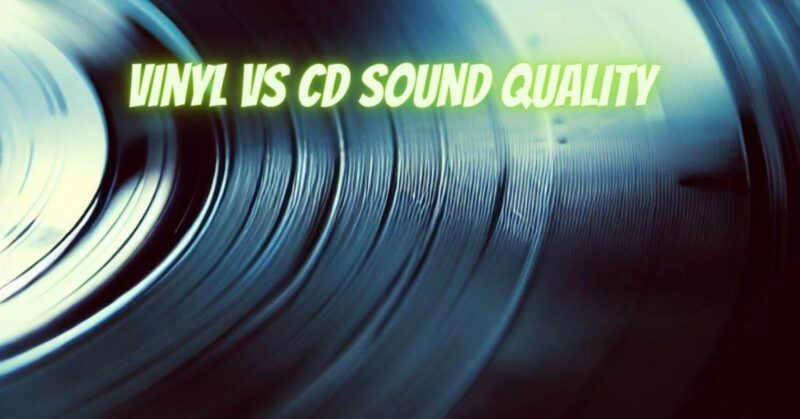The age-old debate between CD and vinyl enthusiasts revolves around the sound quality of these two distinct formats. Some argue that vinyl’s warm analog charm surpasses the digital precision of CDs, while others appreciate the clarity and convenience of compact discs. In this article, we’ll explore the differences in sound quality between CDs and vinyl records, shedding light on the factors that contribute to the unique character of each format.
The Digital Precision of CDs
- Digital Clarity: CDs are the epitome of digital audio. They provide a pristine, noise-free, and accurate representation of the recorded sound. The 16-bit, 44.1 kHz resolution of CD audio is capable of reproducing a vast dynamic range and capturing fine sonic details.
- Low Noise: CDs are virtually immune to the noise, crackles, and pops that can plague vinyl records. The digital nature of the format ensures that the signal-to-noise ratio is consistently excellent, resulting in a quiet listening experience.
- Consistency: CD playback is consistent and reliable. Tracks play the same way every time, without the variations in sound quality that vinyl records may exhibit due to wear or imperfections.
- Convenience: CDs offer the convenience of track skipping, random access, and easy storage. They are also less sensitive to environmental conditions, making them durable and long-lasting.
The Analog Warmth of Vinyl
- Analog Character: Vinyl records offer a warm, analog character that many audiophiles find appealing. The inherent imperfections and nuances in vinyl playback contribute to a unique and organic listening experience.
- Dynamic Range: Vinyl can provide an impressive dynamic range, especially when played on high-end turntables and phono setups. This contributes to a sense of depth and realism in the music.
- Artwork and Ritual: Vinyl records offer a tangible connection to the music through album artwork and the ritual of placing the needle on the record. This tactile experience can enhance the overall enjoyment of the music.
- Embracing Imperfections: Vinyl enthusiasts appreciate the occasional pops, clicks, and surface noise as part of the listening experience. These imperfections are often seen as adding character and nostalgia to the sound.
Subjective Listening
The debate between CD and vinyl sound quality often boils down to personal preference and the specific recording. Some factors to consider:
- Recording Quality: The original recording quality plays a significant role. A well-recorded album can sound excellent on both formats, while a poorly mastered recording may not showcase the strengths of either.
- Playback Equipment: The quality of your playback equipment, including speakers, turntable, cartridge, and CD player, significantly influences the sound you hear.
- Listening Environment: The acoustic properties of your listening space, the quality of your speakers, and the ambient noise in your environment can all affect your perception of sound quality.
The CD vs. vinyl sound quality debate is a complex one with no definitive winner. Each format has its strengths and unique character, and personal preference plays a significant role in the choice. Some listeners prefer the digital precision and convenience of CDs, while others are drawn to the analog warmth and tactile experience of vinyl. Ultimately, the format you choose should align with your listening preferences, your equipment, and the emotional connection you have to the music. Both CDs and vinyl records offer remarkable sonic experiences, and the joy of music can be found in both formats.


